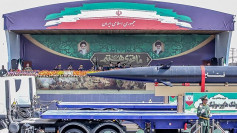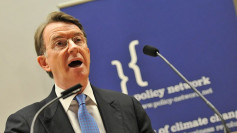Israeli Prime Minister Benjamin Netanyahu announced on Sunday that the "intensive" phase of Israel's offensive in Gaza will soon conclude, but the broader war effort against Hamas will persist. Netanyahu's comments signal a potential shift in focus to the northern border, where tensions with Hezbollah are escalating. This development comes amid ongoing clashes with the Biden administration over cease-fire proposals and concerns about a wider regional conflict.
Speaking in an interview with Channel 14, Netanyahu detailed the upcoming strategic pivot. "The intensive phase of the war against Hamas is about to end. It doesn't mean that the war is about to end, but its intensive phase is about to end in Rafah," he stated, referring to the southern city in Gaza. Netanyahu emphasized that Israel's military efforts would continue, albeit with a potential shift of resources to the northern border with Lebanon. "We will have the option to move part of the force to the north," he said.
Netanyahu also expressed willingness to negotiate a partial cease-fire to secure the release of some hostages held by Hamas. However, he reiterated Israel's commitment to ongoing military operations in Gaza to achieve the ultimate goal of eliminating Hamas. This stance appears to reject a comprehensive cease-fire proposal backed by the United States, which aims to end the fighting and secure the release of all hostages.
Hamas quickly responded to Netanyahu's comments, interpreting his partial cease-fire offer as a rejection of the U.S.-backed plan. "Prime Minister Netanyahu has made it clear that we will not leave Gaza until we return all 120 of our hostages, living and deceased," his office stated. This statement underscores the Israeli government's firm position on the hostage issue.
The situation has also heightened international concerns about a potential escalation with Hezbollah. The European Union's top diplomat, Josep Borrell, warned of the "risk of a full-blown conflict involving Hezbollah." Similarly, Air Force Gen. CQ Brown, chairman of the Joint Chiefs of Staff, cautioned that an Israeli offensive into Lebanon could provoke an Iranian response, endangering U.S. troops in the region.
Netanyahu's comments on U.S. weapons deliveries further strained relations with Washington. He claimed a "dramatic drop" in U.S. weapons supplies to Israel over the past four months, a claim the Biden administration has rejected. Despite this, Israeli Defense Minister Yoav Gallant, during his visit to Washington, emphasized the importance of the U.S.-Israel alliance.
The humanitarian toll in Gaza has been severe. According to local health officials, more than 37,000 people have been killed since the conflict began, including many children. The humanitarian organization Save the Children estimated that up to 21,000 children in Gaza had gone "missing in the chaos of the war," with many feared trapped beneath rubble, detained, or buried in unmarked graves.
Netanyahu's determination to continue the offensive has faced criticism from the families of the hostages. A group representing them condemned his statement, accusing him of abandoning the hostages and violating the state's moral obligation to its citizens.
The potential shift in focus to Hezbollah comes at a critical juncture. The militant group, backed by Iran, has been a long-standing threat on Israel's northern border. Increased military engagement with Hezbollah could ignite a broader regional conflict, drawing in various state and non-state actors.
As the situation evolves, international actors, including the United States and the European Union, continue to push for diplomatic solutions to prevent further escalation. The coming weeks will be crucial in determining whether Israel and Hamas can reach a partial cease-fire agreement and how the potential conflict with Hezbollah will unfold.





